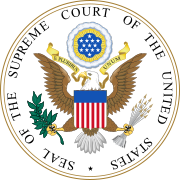 0000-0002-8715-2896 The news release Monday morning grabbed my attention: “Study finds wide gap in quality of BRCA1/2 variant classification between Myriad Genetics and a common public database.” Myriad Genetics had been exclusively providing tests, for $3000+ a
0000-0002-8715-2896 The news release Monday morning grabbed my attention: “Study finds wide gap in quality of BRCA1/2 variant classification between Myriad Genetics and a common public database.” Myriad Genetics had been exclusively providing tests, for $3000+ aCategory Archives: Myriad Genetics
Dueling BRCA Databases: What About the Patient?
 0000-0002-8715-2896 The news release Monday morning grabbed my attention: “Study finds wide gap in quality of BRCA1/2 variant classification between Myriad Genetics and a common public database.” Myriad Genetics had been exclusively providing tests, for $3000+ a
0000-0002-8715-2896 The news release Monday morning grabbed my attention: “Study finds wide gap in quality of BRCA1/2 variant classification between Myriad Genetics and a common public database.” Myriad Genetics had been exclusively providing tests, for $3000+ aPosted by in bioethics, BRCA, ClinVar, featured, hereditary cancer, Myriad Genetics
Held: Genes are products of nature
 Today the US Supreme Court rules that there cannot be patents on genomic DNA information (PDF – 139kb), only modified DNA products like cDNA. Note that the decision was effectively unanimous, the opinion was written by Thomas, and Scalia’s concurrent opinion is essentially an admission of ignorance in the specialty field. I have not had time to read the full opinion, but at initial review this seems like a very reasonable result. Naturally occurring DNA sequences are, well, natural. Sequences modified with intent may be patent eligible. It will be interesting to see in the future if discovery of naturally occurring sequences that are identical to patented sequences modified naively to match a natural variant will invalidate patents.
Today the US Supreme Court rules that there cannot be patents on genomic DNA information (PDF – 139kb), only modified DNA products like cDNA. Note that the decision was effectively unanimous, the opinion was written by Thomas, and Scalia’s concurrent opinion is essentially an admission of ignorance in the specialty field. I have not had time to read the full opinion, but at initial review this seems like a very reasonable result. Naturally occurring DNA sequences are, well, natural. Sequences modified with intent may be patent eligible. It will be interesting to see in the future if discovery of naturally occurring sequences that are identical to patented sequences modified naively to match a natural variant will invalidate patents.
Myriad’s DNA claim falls within the law of nature exception.Myriad’s principal contribution was uncovering the precise location and genetic sequence of the BRCA1 and BRCA2 genes…Myriad did not create or alter either the genetic information encoded in the BCRA1 and BCRA2 genes or the genetic structure of the DNA. It found an important and useful gene, but groundbreaking, innovative, or even brilliant discovery does not by itself satisfy the §101 inquiry…Myriad’s patent descriptions highlight the problem with its claims: They detail the extensive process of discovery, but extensive effort alone is insufficient to satisfy §101’s demands. Myriad’s claims are not saved by the fact that isolating DNA from the human genome severs the chemical bonds that bind gene molecules together. – SCOTUS (PDF -139kb)
Thinking about Angelina
Writing in Forbes, David Kroll has a very thoughtful take on Angelina Jolie’s announcement that she had a preventative double mastectomy after learning that she was at exceptionally high risk for developing breast cancer. While taking nothing away from Jolie’s bravery in writing about her choice, Kroll raises concerns about health care access, gene patents, “certainty” in medicine, and the influence of celebrity (which could be both positive and negative in this case):
On the one hand, I am stunned by the bravery of this high-profile woman to not only undergo such a transformative surgery and then write about it in the nation’s newspaper of record less than three weeks later…On the other hand, I do worry that the ensuing publicity surrounding her announcement might evoke some magnitude of panic in women with breast cancer, particularly those who don’t have BRCA1/2 gene mutations or cannot afford to have the testing done…My primary concern is that some women with breast cancer may think that they are not being aggressive enough with their current treatment plan. – David Kroll